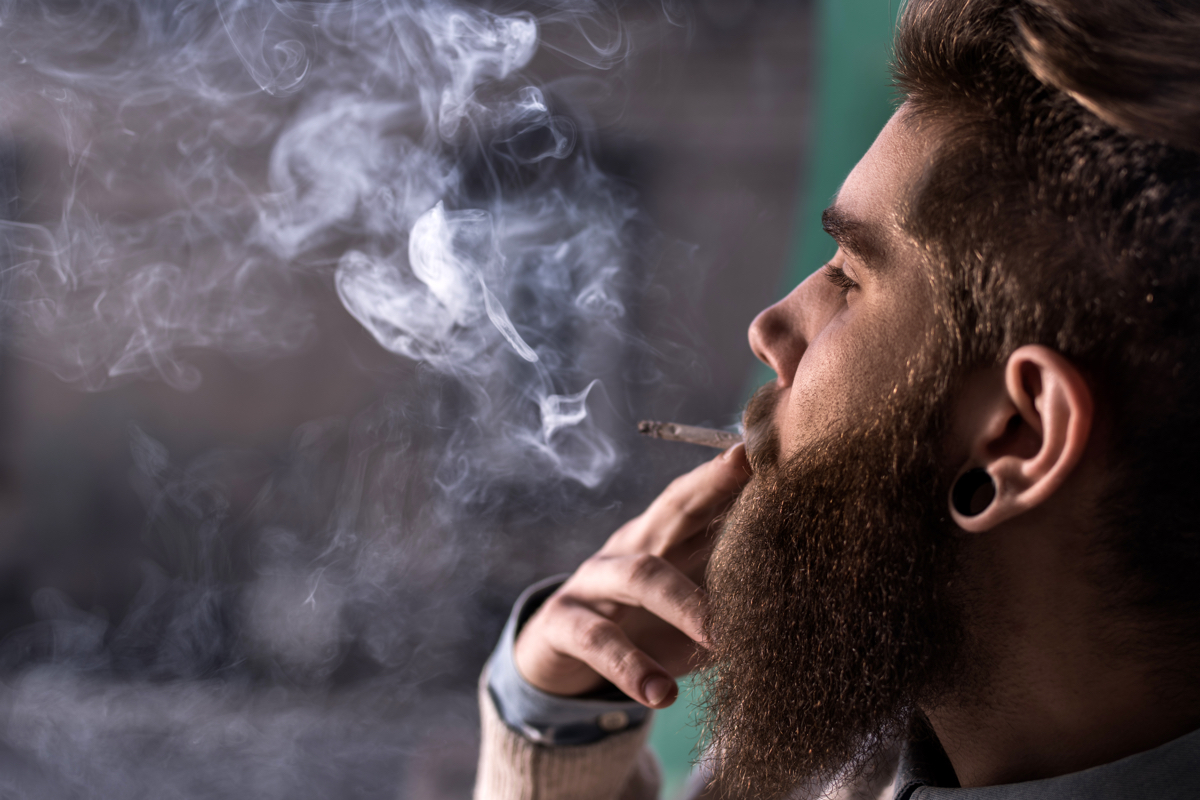Lawmakers Are Open to Doubling the Fine for Smoking Pot in Public

Photo via iStock.com/BraunS
A few days before marijuana legalization is set to take effect in Massachusetts, a prominent anti-pot voice is calling for a crackdown on people who toke up in public.
Jaclyn Cashman, a Herald columnist and radio host, is proposing that the fine on smoking pot in public be increased from $100 to $200. The $100 ticket is the one that currently applies to people who smoke cigarettes in places where doing so is off-limits, like in public parks. The state’s new marijuana law, which takes effect Thursday, makes it legal to possess marijuana, but prohibits pot smoking in any public place (here’s more on what you can, and can’t do, come December 15).
Cashman argues that the $100 fine doesn’t go far enough:
How can law enforcement treat a public pothead with the same penalty as someone smoking a butt? This rule doesn’t change under the new marijuana law. Yet, it’s pretty safe to say as pot shops start opening, brace for red eyes and dizziness.
Politicians need to start drafting a bill now to protect our streets. Pot and cigarettes should not be treated the same. The city should hike the fine for smoking weed in public to $200.
She floated the idea to Mayor Marty Walsh, also an anti-legalization voice, and to City Councilor Annissa Essaibi-George. Both say they are open to it.
Senate President Stan Rosenberg, the highest ranking state politician to express support for legalization, also says he is open to taking another look at the smoking-in-public fine. During an appearance on Herald Radio today, he called such a proposal “fair game” when the Legislature takes up a raft of tweaks to the pot law next year.
Rosenberg is keeping a lot of options on the table. He also said Tuesday he personally would support raising the minimum marijuana smoking age to 25, saying he worries about the impact the drug has on the developing brain. “I don’t know how many of my colleagues would agree,” he said on the radio show. “I’m certainly gonna say it to them and then we’ll see where the conversation goes.”
Cashman, a liberal button-pusher, is in rare form when she writes about legal pot. She earned the hate-read of many a pro-pot activist in September when she declared, in a widely shared column, that “only a dope would vote yes on Question 4.” In the same column, she insinuated that, because of the violent history of the black market drug trade, all marijuana users have blood on their hands. “Every whiff represents a dead body,” she wrote. Buttons, pushed.
But all antagonism aside, she raised a point that will likely become part of the debate as lawmakers—the majority of whom did not support the legalization ballot question—consider what to do with the marijuana law, which is slated to usher in the state’s first recreational pot shops in 2018. And Rosenberg says he wants to get to work as soon as possible. “This will suck all of the oxygen out of the room for a period of time,” he said Tuesday. “So we need to just get it done.”


